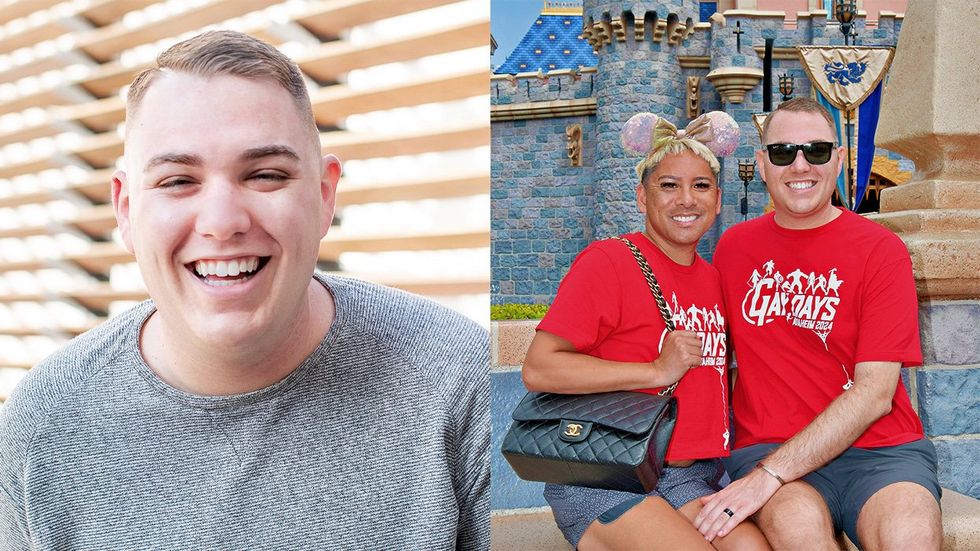Still scared to be seen, what 15 years of being out hasn't changed
I've been out for nearly 15 years. I write openly about queerness. I coach queer tech leaders. I've helped clients come out at work, come out again after trauma, and come out for the very first time. In fact, I'm even scheduled to speak on the main stage at a conference for 500+ LGBTQ+ tech leaders this year.On paper, I look confident and settled in my identity. The truth? Every time I self-disclose, my heart rate spikes, and a shadow of fear creeps in.Earlier this year, our mailperson noticed the giant Pride flag hanging in the living room window. "I noticed your Pride flag," he said. My heart skipped a beat. I braced for impact and prepared for a fight. Then he smiled warmly and added, "Happy belated Pride Month!" I eventually smiled in return; after he left, it took several minutes for my body to re-enter the room, return to the present, and feel safe again. Despite how proud and confident I seem on the outside, it's still scary every time I choose to share my truth."Will this person accept me? How will this impact my business? Am I safe? Could they harm me?" These questions run through my head at light speed each time I choose to come out. When I came out to my parents during my senior year of high school, I thought I was over the hardest part.I was wrong.Coming out isn't a one-time declaration; it's a process. It's a lifelong journey of continually revealing one of the most sacred, tender parts of myself to other humansoften strangersand hoping they'll hold it with care rather than cast it aside.This journey is both deeply personal and wildly political. It's about survival, yes, but also about claiming space in a world that often tries to diminish, or entirely erase, queer lives. I see it every day in my work with queer leaders. One of my clients, a finance executive at a major tech company, still whispers every time he talks about his husband. Another, a successful media executive, refuses to mention her wife at work because she knows it could impact her career trajectory.Their experiences mirror mine and so many others'. Despite visibility and progress, the stakes are high and the fear is real.Most of the time, I'm met with acceptance or indifference. In the current political climate, the latter can feel like a real win. But sometimes, I'm met with hate and violence. A few days ago, when walking next door for ice cream, someone shouted, "Fucking faggot ass," as I entered the store. I hadn't said a word, yet their reflex was to hurl a hateful slur.This is precisely why I hung a gigantic Pride flag in our window. It's not because I'm brave. Honestly, I hate to admit it, but 15 years after coming out, I'm still terrified every single time I come out. I hung the flag because I refuse to shrink. I want to shine. I want my neighbors, my clients, and the world to know that I am who I am, and their words won't change that.But I must also say this: being seen as a queer person is incredibly complicated.It's not just about flying a flag or declaring your truth publicly. It's about the quiet, daily negotiations with safety and vulnerability you have to perform. It's about those times when you lower your voice or hide a part of yourself because you're unsure if the risk is worth the reward. It's about navigating the tension between wanting to be fully proud and visible and wanting to protect yourself from being broken.That tension is where courage and life liveand oh, it's fucking scary.At the end of the day, I want people to know: I am who I am, and their words won't change it. I am who I am, despite what they say. So, yes, I'm still scared to be seen. After 15 years, that hasn't changedand it might never change. But I'm here, still standing, and that flag will remain in our window.Voices is dedicated to featuring a wide range of inspiring personal stories and impactful opinions from the LGBTQ+ community and its allies. Visit Advocate.com/submit to learn more about submission guidelines. Views expressed in Voices stories are those of the guest writers, columnists, and editors, and do not directly represent the views of The Advocate or our parent company, equalpride.




